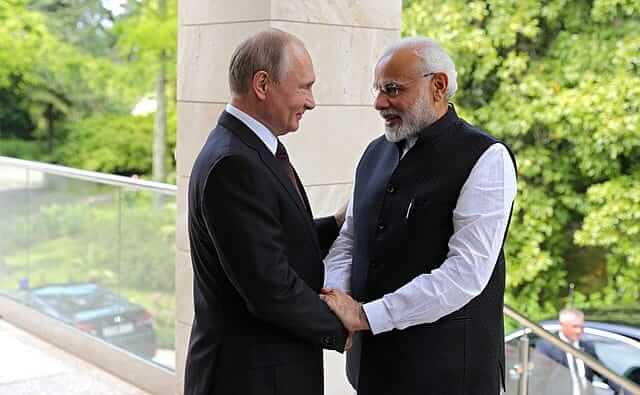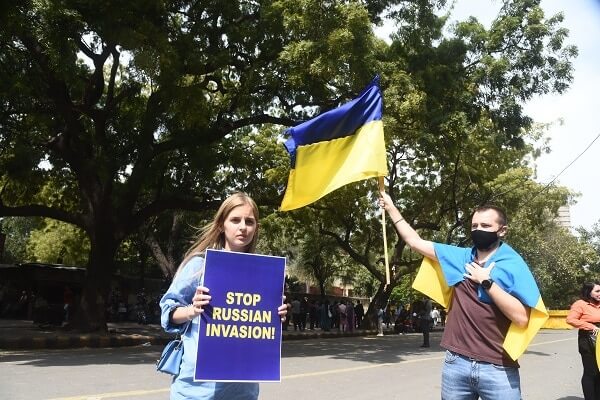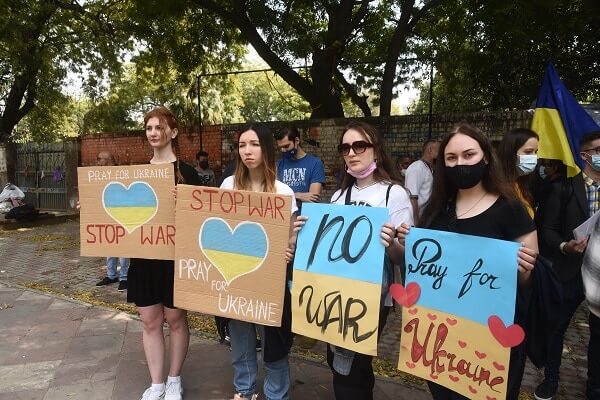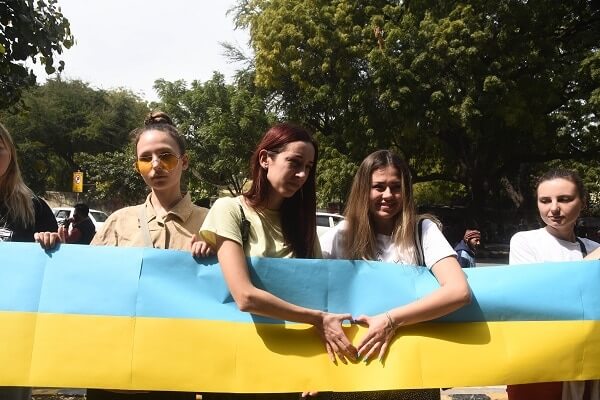As sanctions continue to rain down on Russia in response to its horrific invasion of Ukraine, the world’s geopolitical climate has suddenly changed in a way not seen since 9/11. Now, as then, transnational loyalties are being rapidly flushed out across the world, with Russia becoming increasingly isolated at a scale on which perhaps only North Korea can compare.
While many countries have openly condemned Russia’s actions, some – notably including China and India – have remained neutral, reflecting the complex and multi-faceted considerations underpinning international politics.
But concerningly, politics is also influencing how individuals are reacting to the Kremlin’s atrocities. That is the opposite of how representative government is supposed to work, and from a humanitarian perspective, there can be no justification when it comes to the state-sanctioned murder of innocent civilians.
On the political front, the world’s attention has been drawn to India and China, the largest nations to abstain from voting to condemn Russia in a recent United Nations Security Council Resolution. China’s “no limits” partnership with Russia is well-documented and is a strategic no-brainer for the autocratic Asian country, but India finds itself in a trickier diplomatic quagmire where Russia is concerned.
READ ALSO: Ukraine as a ‘borderland’: a brief history of Ukraine’s place between Europe and Russia
India’s relationships with its Western allies remain of fundamental strategic importance, particularly given the dismal state of relations with China and Pakistan and the threat of growing unrest on those borders. These are by no means a one-way friendship: the West too, views India as a critical democratic lynchpin in the Asia-Pacific region. Think the Quad alliance between India, Australia, the United States and Japan, and the focus on China in last year’s G7 summit in the United Kingdom (to which India was also invited).
On the other hand, India is heavily dependent on Russia from a defence perspective. It is estimated that up to 85% of India’s military technology has Russian origins. Between 2000 and 2020 alone, India spent some $47 billion on arms imports from Russia, and in recent years, India has been Russia’s largest arms purchaser. This is not a case of ‘buy and forget’; the significant investment by India also requires ongoing Russian support in the form of spare parts, maintenance, software and hardware upgrades. These are not easily abandoned.
India’s understandable neutrality on Ukraine has been vigorously supported by many Indian citizens. But there has also been strong support for Russia itself, with the hashtags #IstandwithPutin and #IstandwithRussia continuing to trend on Twitter in India.
Open hostility against a sovereign nation is a strange thing for citizens of the world’s largest democracy to be patriotic about, but it can be attributed to three key causes.
READ ALSO: How Russia’s invasion of Ukraine will affect Australia

First, and primarily – the hyper-nationalisation of India under PM Narendra Modi. You are either “with him” on every issue, or you are not. There is no scope for grey. While the Indian government has necessarily walked a fine line between its Western allies on one hand and Russia on the other, many Indian nationals appear to have seen that as an invitation to not only promote neutrality, but to openly advocate for Russia’s invasion, a staggering leap.
Secondly, whataboutism: many supporters of Putin’s regime, including in India, cite the United States’ dismal record on occupying countries as some kind of twisted justification for Russia’s potential occupation of Ukraine. But obviously, to criticise Russia’s atrocities is not to ignore those committed by the United States, including in Syria, Iraq and Afghanistan. There is a broader conversation to be had about the role of the United States in those and other foreign troop incursions – and the double standards in how the world responds to those events – but not in the context of justifying ongoing crimes against Ukrainians.
Thirdly, the widely-reported instances of Indian nationals – primarily students – being held back from exiting Ukraine, amidst alleged racism by officers in the Ukrainian army. For many on social media and even in mainstream media, this justifies Russia’s military efforts to “de-nazify” Ukraine. But that reflects a failure to recognise that, just like in any other part of the world, there is good and bad in Ukraine. Racism is a scourge, but pockets of racism during the humanitarian disaster of war do not warrant a full-scale military invasion – if that were the case, no country on the planet would be safe.
War is not black and white from a foreign affairs perspective, but as individuals, to oppose the atrocities of war should be the easiest decision we can ever make. To paraphrase Martin Niemöller’s well-known confessional prose, to support or stay silent on the purging of civilian groups is to accept that one day, there will be no one left to speak out for you.






